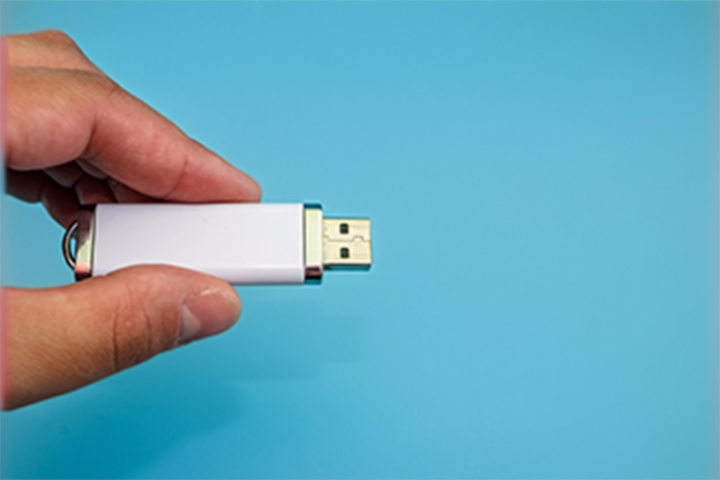A split purchase with the children: what to look out for?

Keytrade Bank
keytradebank.be
March 04, 2022
(updated June 04, 2024)
3 minutes to read
What is a split purchase?
When you buy real estate, you usually buy the "full ownership". This means that you (possibly jointly with your partner or someone else) become the owner and can freely dispose of the property, live in it or let it.
But it can be done differently. In the case of a split purchase, the parents will (usually) buy the usufruct of the property and (usually) the children will purchase the bare ownership.
The usufruct means that the parents can act as if they were owners of the property. The parents can live in it and let the property and/or collect rental income.
The bare ownership means that the children own the property on paper, but are not (yet) able to enjoy it in practice. When the parents die, the children will automatically inherit the usufruct. Only then will they have acquired full ownership of the property.
A split purchase is a popular technique for purchasing real estate. In Belgium, thousands of notarial deeds of purchase of this type are registered each year. A split purchase can also be an interesting path from grandparents to grandchildren or from childless uncles and aunts to nephews and nieces.
In this article, we will only be looking at the technique of splitting a purchase of real estate between private individuals (not companies) in Belgium. This technique can also be used in Spain and France, for example, but other rules and things to look out for may apply to foreign real estate.
What are the benefits of a split purchase?
The main advantage is a reduced inheritance tax bill. By using the technique of a split purchase, the children will not pay inheritance tax on the property acquired through a split purchase. Usufruct is automatically transferred to the children when the parents die, without any payment of inheritance tax (provided that all the legal requirements have been met). An example will show the difference between an "ordinary purchase" and a "split purchase":
Brian's parents have died. The estate includes EUR 100,000 in cash, the family home worth EUR 300,000 and a second home worth EUR 250,000.
His parents lived in the Flemish Region all their lives, which means that Flemish inheritance tax rates apply to the estate. Brian is the only child and the only heir to the estate. Normally, Brian would pay a total of EUR 127,500 euros in inheritance tax based on EUR 650,000.
Now imagine that Brian and his parents had acquired the second home using a split purchase? Brian will likely not have to pay EUR 127,500 in inheritance tax, but only EUR 60,000.
In addition to the tax advantage, there is a second benefit. The parents, as usufructuaries, will be able to enjoy the property for life by living in it themselves or receiving rental income from it. The children cannot "turn their parents out onto the street" or sell the property without their permission.
What are the disadvantages of a split purchase?
The children cannot sell the property without the parents’ permission. And conversely, the parents cannot sell the property without the children’s permission. Both therefore need to agree. As long as the relationship is good, this is not a problem. But it’s still something to keep in mind.
Any repairs are a shared responsibility, which can sometimes lead to "yes it is, no it isn't" arguments if the relationship is not so strong. The usufructuary (parents) must carry out all maintenance repairs, such as painting, repairs to floors, stairs, roof, etc., cleaning the chimney, maintenance and repairs to any lift, etc.
The building works or structural repairs on the other hand, are the responsibility of the bare owner, i.e. the children (unless they are the result of damage caused by the usufructuary). Examples are renovating walls, new roof construction, installation or replacement of central heating or electric wiring. If the parents want to renovate a bathroom or kitchen or change the layout of their home, the children’s agreement is therefore necessary. It is also a good idea to keep this in mind if you are considering a split purchase.
Often, the children do not have sufficient capital to finance the usufruct. To ensure that the children are able to buy the usufruct, the parents gift them this amount prior to the sales offer or contract. The disadvantage is that this money then disappears from the parents’ assets. Except in very exceptional cases, this gift can never be reversed.
How can you organise a split purchase?
There are three options:
- The children have sufficient own resources to buy the bare ownership. In order to avoid inheritance tax at a later date, they will have to be able to prove that they financed the bare ownership themselves at the time, and that there was no question of a hidden benefit. Keep all your account statements safely is the message.
- The children and parents have a joint account in usufruct/bare ownership. The money in this account can be used to finance the real estate with a split purchase.
- The children do not have the funds to finance the bare ownership. In that case, a gift provides a solution. At the time of the parents’ death, the children will have to be able to prove that they had the means to finance the bare ownership at the time of purchase. They do not have to have saved enough to have these financial resources themselves, they can have received them as a gift from their parents.
How can you avoid problems with the tax authorities?
In order to prevent the tax authorities from questioning the set-up used at a later date, and from trying to collect inheritance tax from the children, it is important to proceed logically and keep all the documents in a safe place. Always bear in mind that any potential problems will only arise when the parents die. Your notary will always be able to provide you with personal advice on this matter. Some points to consider in order to avoid problems with the tax authorities are the allocation basis, the timing of a possible gift, and proof of the gift.
Basis of allocation between usufruct and bare ownership
The children pay EUR 5 for the bare ownership and the parents cough up EUR 399,995 for the usufruct? This will cause loud alarm bells to ring! Your notary will point out that it is best not to pick a random allocation between the usufruct and the bare ownership. In order to determine the share of the usufructuary and the bare owner in the purchase price, it is important to value the usufruct correctly. In practice, the tables in the Civil Code are often used for this purpose. These are published annually in the Belgian Official Gazette. The value of the usufruct is expressed as a percentage, taking interest rates into account, and mortality tables and gender. Are your parents 90 years old? In that case, their share in usufruct will be much lower than if your parents were 40 years old. The legislator assumes correctly that 90-year olds are unlikely to enjoy their home for as long as 40-year olds.
Useful to know: you are not required to use these tables to determine the allocation. However, the allocation key you choose must be "economically reasonable". Of course, this is open to interpretation, whereas the tables in the Civil Code are not.
Timing of any gifts to the children
Secondly, there is also a timing issue. In most cases, the children pay the bare ownership with money they receive as a gift from their parents. Plenty has already been written about the timing of the gift: in recent years, the tax authorities have regularly changed their position on what is and what is not allowed or required. Right now, the rules are as follows:
- In the Brussels-Capital Region and the Walloon Region, when the offer to buy requires a down payment, the full amount must be gifted before the offer to buy is signed.
- In the Flemish Region, the full amount must be gifted before the actual contract of sale is signed. The Flemish Tax Authority therefore does not require this to be done before the offer to buy is signed, as is the case in the other regions. However, some specialists believe that the text of the opinion issued by the Flemish Tax Authority is open to interpretation, which means that notaries will sometimes advise making sure the gift is made before the offer to buy is signed.
Proof of possible gifts to children
Many years after the purchase, the tax authorities can ask the children for proof of the gift. If they are unable to present transfers and gift documents, inheritance tax may still be levied.
If the parents make a gift so that the children can buy the bare ownership, they can make the gift in one of two ways:
- using a notarial deed, on which gift tax is due (but the risk of inheritance tax is avoided).
- using an unregistered bank transfer, on which no gift tax is due (but the risk of inheritance tax is not ruled out).
If a gift is made using a bank transfer, it must be proven that it took place before the agreement (Brussels and Wallonia) or before the contract (Flanders) was signed. If a notarial deed exists (or a registered bank transfer), there is no problem in providing this proof. In the case of an unregistered bank transfer, you need to keep the account statements together with the "supplementary agreement" that was sent by registered post. The children must keep these documents very carefully, so that all the evidence can be provided to the tax authorities on the death of their parents.
Can a split purchase also be made for the sole family home?
Yes, this is possible. A split purchase does not necessarily have to be for a second home or other additional real estate. If a split purchase of the sole family home is decided on, it is important that in all cases the deed provides for an extension of the usufruct in favour of the surviving parent, so that he or she can continue living/renting the home without interruption on the death of their spouse.
Can a split purchase also be arranged for things other than real estate, such as an expensive work of art or a valuable classic car? If so, can you organise this without a notary?
In principle, yes this is possible, but it happens very rarely in practice, was the reply when we asked notary Maarten Duytschaever. A split purchase of this kind does not have to be made using a notary, as it is not a real estate transaction. However, the notary can help to draw up the accompanying documents (e.g. if the parents give money as a gift to the children in advance to enable the purchase of the bare ownership).
A gift of a work of art or a classic car while reserving the usufruct is more appropriate in these cases: in that case, the gift will have to be made by notarial deed (because of reserving the usufruct, even when it does not involve a real estate transaction). In that case, gift tax will be due on the full value of the property from the beneficiary.
Can a split purchase also be made with children who are minors?
Yes, but approval must be given by the justice of the peace for the purchase of a bare ownership by children. The parents need to draw up a petition to the justice of the peace. The draft contract of purchase will also have to be submitted to the justice of the peace.


